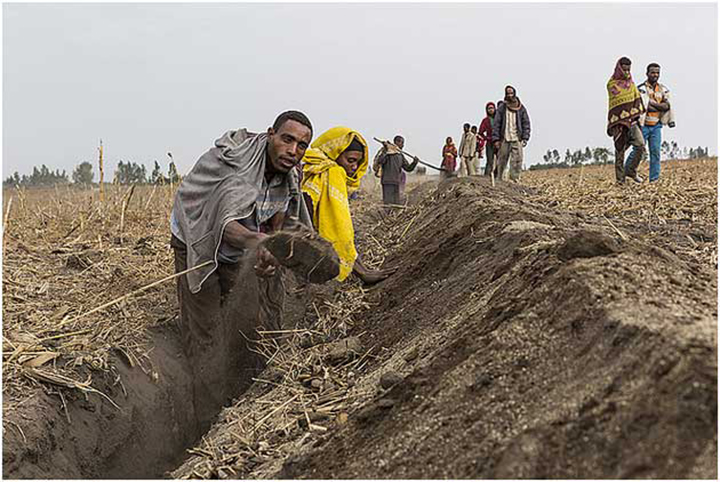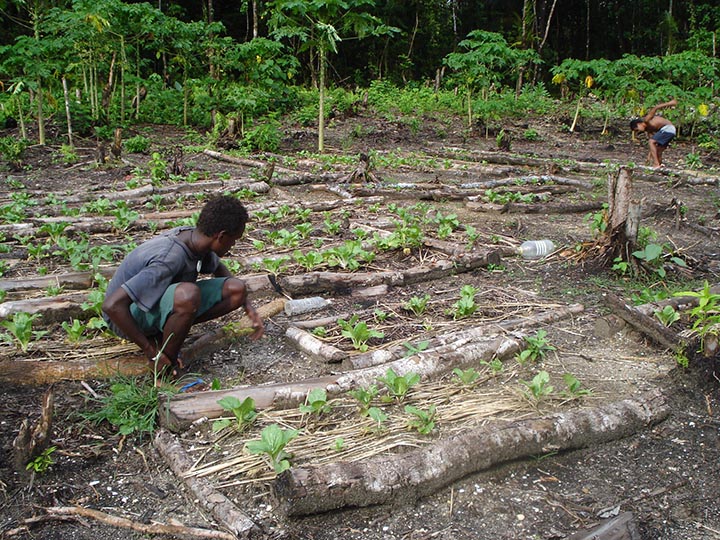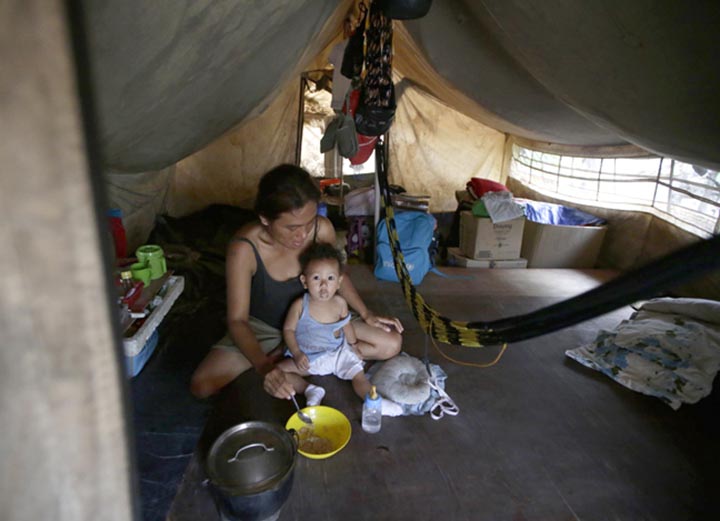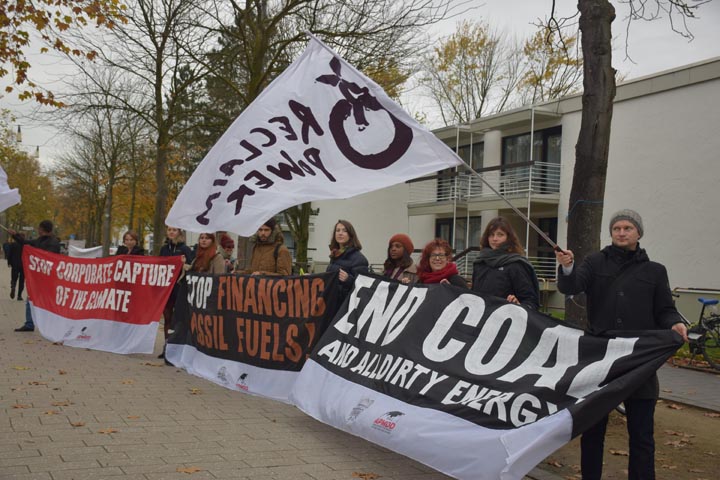Posts by author
Inter Press Service
Indigenous knowledge, a lesson for a sustainable food future
MILAN, Italy—Local knowledge systems rooted in traditional practices and culture passed down generations provide sustainable solutions to food and nutritional insecurity on the back of climate change, said at a conference recently.
Changing weather to affect living standards of half of India’s population
NEW DELHI—The India Meteorological Department (IMD) in January declared that 2018 was the sixth-warmest year in the last 117 years or since 1901, when recording started.
PHL island women lead in peatland restoration
ALANGALANG, Leyte—Eluminada Roca has lived all her life next to the Leyte Sab-a Basin peatlands in this municipality. The grandmother from San Isidro village in this Leyte Island grew up looking at the green hills that feed water to the peatland, she harvested tikog—a peatland grass to weave mats—and ate the delicious fish that was once in abundant in the waters.
Industrial jobs in danger when climate is to be saved
STOCKHOLM—The trade unions’ solution for a greener world is new jobs with good working conditions. The critics argue that there’s not enough time.
2B hectares of land globally degraded
GEORGETOWN—New data show that globally 2 billion hectares of land—roughly twice the size of China—have been degraded. And of this amount, 500 million hectares are abandoned agricultural lands.
‘Forests provide the world with oxygen, but more climate-change finance is needed’
PARAMARIBO—Suriname, the most forested country in the world, hosted a major international conference on climate financing for High Forest Cover and Low Deforestation (HFLD) countries.
Rapa Nui’s stone statues and marine resources face threats from climate change
HANGA ROA, Chile—Social activists and local authorities in Rapa Nui, or Easter Island, are calling for urgent action to address rising sea temperatures, declining rainfall and rising tides that threaten their fishing resources and their Moais, the mysterious volcanic stone monoliths.
Making communities drought resilient
GEORGETOWN—The United Nations Convention to Combat Desertification’s (UNCCD) Drought Initiative is in full swing with dozens of countries signing up to plan their drought program.
Climate change: Complex challenges for agriculture
ZURICH, Switzerland—The unusually hot summer of 2018 showed that climate change affects a central part of our lives: agriculture. The severe drought in Liechtenstein led to large losses in the hay harvest.
Sprouting mangroves restore hopes in coastal Myanmar
SHWE THAUNG YAN, Myanmar—Htay Aung is having a moment. The 63-year-old retired professor of marine science sits at the foot of a Buddha statue atop a hill on Shwe Thaung Yan subtownship, in Myanmar’s Ayyerwady region, almost in meditation. Below him, a vast thicket of mangrove glistens in the gold of a setting sun.
Over half of world’s tropical forests destroyed
SHARM EL SHEIKH, Egypt—At least 10 more percent of land than what is currently being used to grow green crops will be required to successfully replace fossil fuels with alternatives derived from natural sources such as biofuel, biodiversity conservationists have revealed.
Mother nature can help us deal with water disasters
By Vladimir Smakhtin | Inter Press Service
Climate change becoming a reality check for the North
WAGENINGEN, the Netherlands—“This season, the month of May was particularly hot and dry,” said Leo de Jong, a commercial farmer in Zeewolde, in Flevopolder, the Netherlands.
Will climate change cause more migrants than wars?
Climate change is one of the main drivers of migration and will be increasingly so. It will even have a more significant role in the displacement of people than armed conflicts, which today cause major refugee crises.
How global emissions have changed since 1850
WASHINGTON, D.C.—Which countries have emitted the most greenhouse gases? The quick answer is, “It depends.” A more definitive response is tougher than you may expect. Many factors inform the answer.
Is desalination an answer to water crisis?
TAMPA, Florida—On the recent World Water Day, universal access to clean water continues to be a privilege, when it should be a right. Experts predict that by 2030 the global water demand will exceed supply by 40 percent.
Is there data privacy, protection to poor customers?
WASHINGTON, D.C.—Research increasingly demonstrates that poor customers, just like other customers, value their privacy and care deeply about the protection of their personal data.
Former world’s garbage dump, China bans waste products
MAASTRICHT, Netherlands—China, once the final resting place for half the world’s trash, has just banned the import of certain plastic, paper and textile waste.
Water, water everywhere, costs more than you might think
fWASHINGTON, D.C.—Without reliable access to water, human beings cannot survive. Yet, three out of 10 people do not have a safely managed water supply, and six out of 10 lack safely managed sanitation. Over 2 billion people drank water that was contaminated with feces in 2015.
Nowhere to hide from climate change
TOGORU, Fiji—The water is nibbling away the beaches of Fiji. Not even the dead are allowed peace of mind. The graveyard of Togoru—a village on the largest island of Fiji—has been submerged.
Should environmental refugees be granted asylum status?
UNITED NATIONS—The 1951 United Nations convention on political refugees—which never foresaw the phenomenon of climate change—permits refugee status only if one “has a well-founded fear of persecution because of his or her race, religion, nationality, membership in a particular social group or political opinion.”
Empowering women improves communities, ensures success for generations
ROME—At an event held on October 29 at the International Fund for Agricultural Development (Ifad) Gender Awards 2017, five countries were honored for impressive achievements in gender equality and women’s empowerment despite harsh conditions and numerous daunting situational and societal obstacles. The five countries are Bangladesh, Mozambique, Colombia, Morocco and Mauritania. The Ifad-supported projects in these countries have ambitious goals for a more egalitarian future. To date, these projects have successfully provided women with decision-making opportunities, skill training and increased autonomy through the development of their own livelihoods.
Combating climate change? Fight land degradation–UNCCD chief
BONN, Germany—Land restoration is not a “glamorous subject even when you give all the numbers,” admitted Monique Barbut, the executive secretary of United Nations Convention to Combat Desertification (UNCCD).
At climate summit, 2 global energy alliances emerge
BONN, Germany—As the summit of governments, known as 23rd Conference of the Parties (COP 23) reached its conclusion in Bonn, Germany, last weekend, two clear alliances have emerged in the global energy landscape.
















